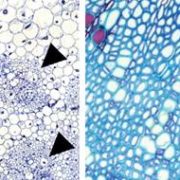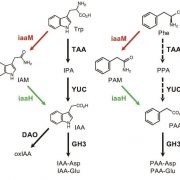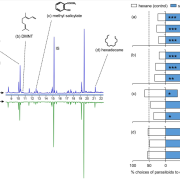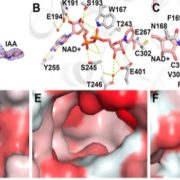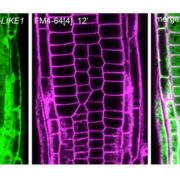The repetitive effector Rsp3 promotes the virulence of the corn smut fungus Ustilago maydis
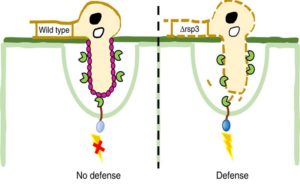 The corn smut fungus Ustilago maydis manipulates maize tissues and cells through the secretion of effectors that modulate host protein activities. In a recent article published in Nature Communications, Ma et al. characterize a highly repetitive effector protein family (Rsp3, repetitive secreted protein 3) that significantly contributes to fungal virulence. The transcriptional induction of Rsp3 coincided with the establishment of intracellular colonization while Rsp3 protein was shown to decorate fungal hyphae and interact with host-secreted anti-fungal proteins (AFPs). Importantly, U. maydis knockout strains lacking the Rsp3 effector displayed reduced virulence on wild-type maize seedlings, but remained fully virulent on AFP-silenced host plants. Together these results highlight the role of Rsp3 in binding and preventing the anti-fungal activity of host AFPs during intracellular colonization. Furthermore, the authors demonstrated the widespread prevalence of Rsp3 homologs in several smut fungi and validated the functional conservation of an Rsp3 homolog from an additional maize-infecting pathogen. This work suggests that Rsp3 proteins promote pathogen growth by protecting fungal hyphae from the activity of anti-fungal host proteins. (Summary by Phil Carella) Nature Comms. 10.1038/s41467-018-04149-0
The corn smut fungus Ustilago maydis manipulates maize tissues and cells through the secretion of effectors that modulate host protein activities. In a recent article published in Nature Communications, Ma et al. characterize a highly repetitive effector protein family (Rsp3, repetitive secreted protein 3) that significantly contributes to fungal virulence. The transcriptional induction of Rsp3 coincided with the establishment of intracellular colonization while Rsp3 protein was shown to decorate fungal hyphae and interact with host-secreted anti-fungal proteins (AFPs). Importantly, U. maydis knockout strains lacking the Rsp3 effector displayed reduced virulence on wild-type maize seedlings, but remained fully virulent on AFP-silenced host plants. Together these results highlight the role of Rsp3 in binding and preventing the anti-fungal activity of host AFPs during intracellular colonization. Furthermore, the authors demonstrated the widespread prevalence of Rsp3 homologs in several smut fungi and validated the functional conservation of an Rsp3 homolog from an additional maize-infecting pathogen. This work suggests that Rsp3 proteins promote pathogen growth by protecting fungal hyphae from the activity of anti-fungal host proteins. (Summary by Phil Carella) Nature Comms. 10.1038/s41467-018-04149-0
[altmetric doi=”10.1038/s41467-018-04149-0″ details=”right” float=”right”]


